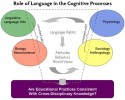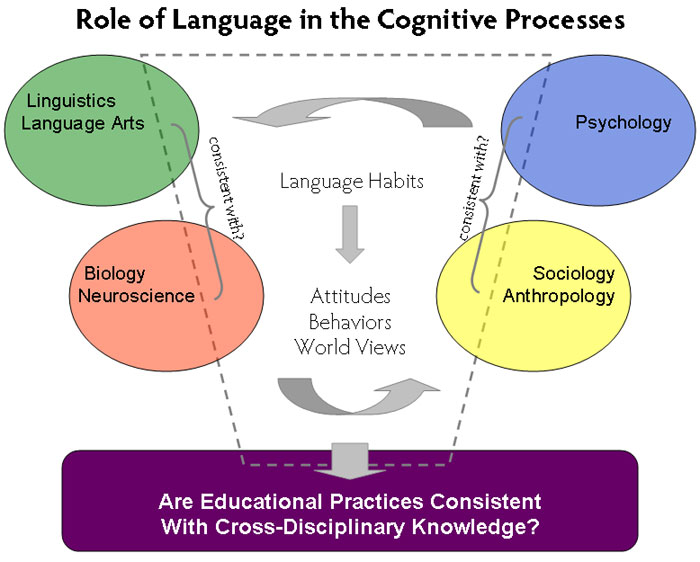 The following is an excerpt from my application letter of intent that broadly summarizes my academic interests in the field of Educational Psychology.
The following is an excerpt from my application letter of intent that broadly summarizes my academic interests in the field of Educational Psychology.
My decision to pursue the M.A. in Educational Psychology is the result of a 40-year gestation period. A few significant milestones along the way:
- In high school I began thinking about individuality and conformity, wondering why some friends seemed to go along with the crowd while just a few acted according to their own sense of values.
- I wrote a one-act play at the Air Force Academy titled, “The Unveiling of Ourselves.” Patterned on the Greek morality play, the main character “YOU” struggles to discover his own sense of self while (literally) being pulled by the competing interests of “The Group” on one hand and “The Ways of the World” on the other.
- I read S.I. Hayakawa’s Language in Thought and Action in a graduate linguistics course at TCU in 1979. For the first time, I began to grasp the role that language plays in shaping human conflict or cooperation, tolerance or intolerance, prejudice or acceptance, conforming or marching to the beat of your own drum.
- In early 1993, I ‘graduated’ after three years of therapy to deal with deep unhappiness related to my marriage, work, self, etc. Feeling much better and thinking more clearly, I realized that the therapy itself consisted entirely of dialogue – I talked, the therapist listened, she talked, I listened, and then between sessions I carried on a similar dialogue inside my own head. Simply put, the therapy sessions helped me fix certain thinking habits that had become unproductive, non-sensical, and self-defeating. I realized that much of the talking therapy related directly to what I had understood from the Hayakawa book – but in the years since I had not been able to apply what I thought I understood.
- The following year I attended a week-long seminar conducted by the Institute of General Semantics. This ignited my ongoing passion for studying how language shapes, and is shaped by, our cognitive processes to:
- construct individual meanings from experiences;
- bind experiences and meanings into memory; and
- develop, over time, an individually-unique orientation, or world view.
- In 2001, I resigned from the corporate career I had accepted for 19 years in order to pursue this passion. After a two years of volunteer and part-time work for the Institute of General Semantics, I served as full-time Executive Director from 2004-2007.
- I was asked to teach an elective course in General Semantics in the Communication Studies department at TCU in 2005. The following year I was asked to design a catalog course that would be offered in TCU’s Schieffer School of Journalism, which I taught through 2008.
- The scope of my academic interests is reflected in the definition of General Semantics I created for the TCU syllabus: the process of how we perceive, construct, evaluate, and respond to our life experiences.
I constructed the figure below in an attempt to graphically portray the gist of my academic motivations:

Why have I now decided to pursue the Educational Psychology M.A. at UNM?
- Until I decided to take a year hiatus in 2009 and moved to Santa Fe, I didn’t think of my lack of an advanced degree as a career impediment. I knew what I knew, I knew what I wanted to write and advocate, I knew how to research the resources that satisfied my curiosities … I just needed to do it.
- However, over the course of the past year I reluctantly, but resolutely, realized the magnitude of two inevitable obstacles that I simply could not avoid if I expected success: a) regardless of how eloquently and persuasively I might offer my contentions, no one in the academic realm and few in the general public would accept my work if I could not report results of actual research; and b) lacking actual results, even if I were to propose a research program for others to conduct, without the credentials of an advanced degree I couldn’t reasonably expect any positive reception.
- Serendipitously, the UNM Educational Psychology program offers courses that I find relevant to my interests, with a specific focus on research.
If admitted to the Educational Psychology program, my intention would be to concentrate on research – theory, design, conduct, analysis, and publication. In addition to the required courses for the M.A., I would look for relevant electives in linguistics, anthropology, psychology, or perhaps biology to broaden my perspective.
